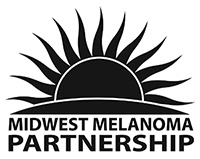Mucosal melanoma is a rare form of cancer, constituting about 1 percent of all melanoma cases. The disease arises from the pigment-producing melanocytes present in the body’s mucosal tissue, and is most commonly found in the head and neck region, anorectal region, and female genital tract.
Unlike the far more common cutaneous melanomas, mucosal melanomas are not widely studied, and no accepted standard of care has been established. Recurrence rates, even for early-stage disease, approach 100 percent, underscoring the urgent need for effective therapies for this population.
A new study led by Robert R. McWilliams, MD, of Mayo Clinic, in collaboration with the Midwest Melanoma Partnership (MMP) and Hoosier Cancer Research Network (HCRN), may provide valuable knowledge toward better understanding this disease.
The SALVO study, also known as HCRN MEL16-252, is a single-arm, phase II study of ipilimumab and nivolumab as adjuvant therapy for resected mucosal melanoma. The primary objective of the study is to assess whether the median recurrence-free survival (RFS) time — the time it takes until the cancer returns — exceeds historic median RFS times. Secondary objectives include assessing the safety profile and estimating overall survival of patients with mucosal melanoma who receive the combination of ipilimumab and nivolumab.
The study is now open to enrollment at Mayo Clinic in Rochester, Minn. Additional sites across the United States will open soon. The study will enroll 36 subjects. All participants will receive ipilimumab and nivolumab for four cycles, and up to 11 additional cycles of nivolumab alone until disease progression.
How the drugs work
The immune system sends out special cells called T cells to fight infections and diseases throughout the body. Some cancer cells can hide from T cells by taking control of a pathway called PD-1. This lets the cancer cells avoid an attack from T cells. Nivolumab is an immunotherapy that blocks the PD-1 pathway. By blocking PD-1, it allows the human immune system to recognize and kill cancer cells. Nivolumab is approved by the U.S. Food and Drug Administration (FDA) for the treatment of advanced melanoma as well as advanced lung and renal cell cancer.
Ipilimumab is an immunotherapy drug that targets CTLA-4, a protein receptor that inhibits the function of T cells. Ipilimumab is FDA-approved for the treatment of advanced melanoma and high-risk surgically resectable melanoma.
To enroll in the SALVO study, subjects must have surgically resected mucosal melanoma of any site, with no evidence of distant metastasis. Additional eligibility requirements must be met to enroll.
For more information about this study, including full eligibility requirements, visit www.clinicaltrials.gov (study #NCT03241186).
This trial is supported by Bristol-Myers Squibb Company.
About the Midwest Melanoma Partnership
 The Midwest Melanoma Partnership is a multi-institutional collaboration of physicians, scientists, and patient advocates dedicated to the development of improved therapies for patients with malignant melanoma. It is the mission of the Midwest Melanoma Partnership to facilitate the sharing of ideas, clinical trials, and resources in an effort to improve the diagnosis, treatment, and long-term care of melanoma patients.
The Midwest Melanoma Partnership is a multi-institutional collaboration of physicians, scientists, and patient advocates dedicated to the development of improved therapies for patients with malignant melanoma. It is the mission of the Midwest Melanoma Partnership to facilitate the sharing of ideas, clinical trials, and resources in an effort to improve the diagnosis, treatment, and long-term care of melanoma patients.
About Hoosier Cancer Research Network
Hoosier Cancer Research Network (formerly known as Hoosier Oncology Group) conducts innovative cancer research in collaboration with academic and community physicians and scientists across the United States. The organization provides comprehensive clinical trial management and support, from conception through publication. Created in 1984 as a program of the Walther Cancer Institute, Hoosier Cancer Research Network became an independent nonprofit clinical research organization in 2007. Since its founding, Hoosier Cancer Research Network has initiated more than 160 trials in a variety of cancer types and supportive care, resulting in more than 350 publications. More than 5,000 subjects have participated in Hoosier Cancer Research Network clinical trials.

